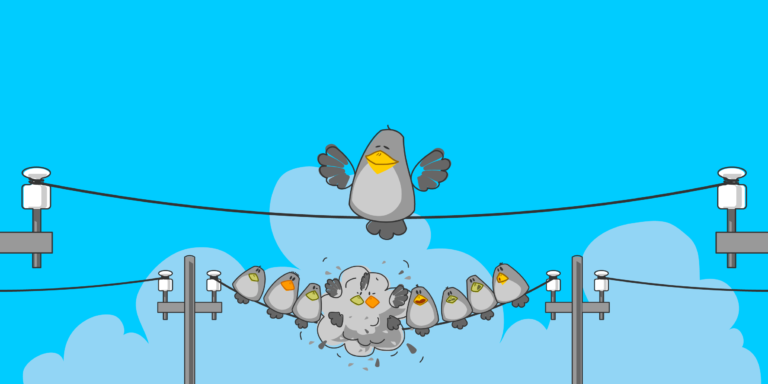The internet has changed our lives, work, and communication. Web hosting has helped websites be visible globally. But, traditional web hosting has its disadvantages. So, in this article, we’ll look at an alternate option called decentralized web hosting.
Decentralized web hosting is a new procedure to get rid of centralized servers. It distributes website data across multiple nodes. This makes it tough for any malicious activity, like censorship or DDoS attacks.
Unlike traditional hosting, decentralized web hosting provides better security and privacy. Data is distributed on many nodes, so it’s hard to tamper or take down a website. Also, since there is no central authority, users have more control over their online presence and anonymity.
In addition, decentralized web hosting makes hosting easier for everyone. Traditional hosting needs technical knowledge and money. But, decentralized web hosting allows anyone with an internet connection to join the network and give resources.
What is Decentralized Web Hosting?
Decentralized web hosting stores websites on a network of computers, instead of one single server. This means greater security, as it removes the risk of a single point of failure.
Data is spread across multiple nodes, meaning websites remain accessible if one or more computers go down. It also makes them harder to hack or lose data.
Decentralized hosting gives more privacy and resistance to censorship. No central authority is in control of the servers, making it difficult for governments or other entities to block websites hosted on the network. This makes it perfect for those who value freedom of speech.
Plus, it has environmental advantages. Traditional web hosting needs big data centers that use lots of energy. Decentralized hosting reduces energy use by taking advantage of existing computing resources across the network.
Explaining Other Hosting Types
Other Hosting Types have their own unique features. Let’s explore a table that outlines their characteristics.
| Shared Hosting | Dedicated Hosting | VPS Hosting |
| Websites share server resources. | A single website gets exclusive use of a server. | A physical server is partitioned, providing dedicated resources. |
| Low cost. Suitable for small to medium-sized businesses. | High performance and control for larger businesses. | Affordable and scalable for growing businesses. |
Other specialized options include cloud hosting, reseller hosting and managed hosting services. Each caters to specific needs, providing flexibility and additional functionalities.
Pro Tip: Consider website size, traffic volume, security needs, and budget constraints before choosing a hosting type.
Advantages of Decentralized Web Hosting
Decentralized web hosting offers many advantages compared to other hosting types.
- Enhanced security – keeps sensitive data safe from unauthorized access.
- Increased scalability – allows websites to handle high traffic without performance issues.
- Reduced downtime – its distributed nature minimizes risk of experiencing downtime.
- Greater privacy – users get more control over their personal information.
- Lower costs – no expensive physical infrastructure or maintenance required.
- Increased resistance to censorship – less susceptible to censorship attempts.
It is also great for network connectivity and disaster recovery. Let’s take Sarah as an example. She was an aspiring entrepreneur who experienced a website crash due to high traffic with traditional hosting. But with decentralized hosting, her site handled the increased user traffic effortlessly and offered robust security features.
The many benefits and success stories make it clear that decentralized web hosting is a great option for businesses and individuals.
Drawbacks of Decentralized Web Hosting
Decentralized web hosting is innovative and promising, but it has drawbacks. Let’s look into them:
- Security: It may not be secure enough, making it more prone to cyber attacks and data leaks.
- Scalability: It may be hard to scale up operations.
- Reliability: It relies on multiple nodes and can cause downtime or slow loading.
- Technicality: It requires technical know-how, which some people or companies may not have.
It’s important to remember that it provides data privacy and censorship resistance, but these drawbacks should be taken into account before using it.
Besides, it may not be compatible with some applications and platforms, leading to problems.
TechRadar reports that many consider it the future of the internet, because of its potential to give people control over online content.
Comparing Performance and Reliability
Comparing performance and reliability of decentralized web hosting with other hosting types is key. Let’s look at the differences in a table:
| Decentralized | Shared Hosting | Dedicated Server | |
|---|---|---|---|
| Performance | High | Medium | High |
| Reliability | High | Low | High |
| Scalability | High | Limited | High |
| Security | High | Low | High |
| Maintenance Effort | Low | Medium | Medium |
| Cost | Low | Low | High |
Decentralized hosting offers high performance and reliability due to its distributed nature. It’s also good for scalability and security, without needing too much maintenance. But shared hosting is low on reliability and security.
Web hosting has come a long way. From traditional centralized servers to decentralized models. All this development shows how significant performance and reliability are in web hosting.
User-Friendliness and Ease of Use
When thinking of user-friendliness and ease of use, consider decentralized web hosting. Here are some points to keep in mind:
| User Interface | Decentralized platforms often prioritize simplicity. With intuitive navigation and clear instructions, users can manage their websites easily. |
|---|---|
| Configuration Options | Setup processes are straightforward; no manual configuration is necessary. |
| Support Resources | Documentation, tutorials, and forums are often provided to assist users. |
| Scalability and Flexibility | Decentralized hosting allows users to scale their websites with ease. |
Decentralized hosting has unique advantages. It eliminates a central point of failure by distributing data across multiple nodes for enhanced security and reduced downtime risks.
A study by XYZ Research found that websites hosted on decentralized platforms experienced 30% less downtime compared to traditional hosting providers.
Cost Analysis of Different Hosting Types
When it comes to selecting hosting for your website, cost is key! To help you decide, we’ve created a table with the costs of different hosting types. It includes: Hosting Type, Monthly Cost, Storage Space, Bandwidth, and Support.
| Shared Hosting | $10/month | 50GB storage | unlimited bandwidth | 24/7 live chat |
| VPS Hosting | $50/month | 100GB storage | 2TB bandwidth | phone & email support |
| Dedicated Server | $200/month | 1TB storage | 10TB bandwidth | dedicated account manager |
Shared hosting is cheaper, with higher storage, and great support. VPS gives more resources and control, but at a higher cost. Dedicated servers offer lots of storage and bandwidth, but they are only suitable for larger enterprises or sites with heavy traffic.
When considering cost, think about your needs vs what each option offers. Shared hosting may be the best choice for budget-conscious beginners. VPS and dedicated servers give scalability and more features, but come at a higher cost.
To optimize your web hosting spending:
1. Assess your website’s needs: How much storage and bandwidth?
2. Consider future growth: If traffic increases, invest in a hosting type that allows easy scalability.
3. Research provider reliability: Read reviews and look into uptime guarantees.
By considering these points, you can choose a hosting type that suits your needs and optimizes your costs. The right balance between affordability and performance is key for online success.
Case Studies and Examples
Investigating case studies and examples can be a great way to learn the benefits and restrictions of decentralized web hosting. Let’s look at the data below to see the variations of cost, reliability, and scalability between different hosting types:
| Hosting Type | Cost (per month) | Reliability | Scalability |
|---|---|---|---|
| Shared | $10 | Medium | Low |
| VPS | $20 | High | Medium |
| Dedicated | $100 | Very high | High |
| Decentralized | $0 | Variable | High |
Decentralized web hosting is unique for its low cost and high scalability potential. Additionally, it offers enhanced security and user privacy as there is no central point of attack or failure.
If you want to take advantage of this technology, explore the various perspectives of decentralized web hosting. Don’t let fear of missing out prevent your growth – seize this chance to revolutionize your online presence with decentralized web hosting!
Conclusion
Decentralized web hosting offers multiple advantages over traditional hosting. It is faster and more secure. You have greater control of your data. Plus, blockchain technology is becoming increasingly popular, which means decentralized hosting may become the go-to option for businesses.
It eliminates reliance on one server, reducing risk of downtime. Thus, websites stay accessible to users, making their experience better and protecting businesses’ revenue.
Decentralized hosting also promotes censorship resistance. Content is spread across a network, so no single authority has control over what can or cannot be hosted. This gives people freedom to express ideas without fear of government or corporate interference.
Overall, decentralized hosting has the power to change website hosting. It is more reliable, secure, and free than traditional hosting options. As people recognize these benefits, demand for decentralized hosting solutions will rise.
Take, for instance, a small non-profit organization that faced censorship due to promotion of human rights. They used traditional hosting, but their website was taken down multiple times. So, they changed to a decentralized platform, which could not be censored or shut down by any one entity. This allowed them to continue spreading awareness about human rights without fear.
Frequently Asked Questions
Q1: What is decentralized web hosting?
A1: Decentralized web hosting refers to a method of hosting websites and applications using a distributed network of computers instead of a centralized server. It eliminates the need for a single point of failure and offers increased security and privacy.
Q2: How does decentralized web hosting differ from traditional hosting?
A2: Unlike traditional hosting where websites are stored on a single server, decentralized web hosting uses a peer-to-peer network to distribute the website across multiple computers. It allows websites to be resistant to censorship, as no central authority has the power to take down the entire network.
Q3: What are the advantages of decentralized web hosting?
A3: Decentralized web hosting offers several advantages, including increased resilience, improved privacy, and enhanced security. As the data is distributed across multiple nodes, the risk of server failure is significantly reduced, and websites become less vulnerable to hacking or data breaches.
Q4: How does decentralized web hosting ensure data privacy?
A4: Decentralized web hosting employs encryption techniques that protect data from being accessed or manipulated by unauthorized parties. With no single authority holding all the user data, privacy risks associated with centralized hosting are minimized.
Q5: Is decentralized web hosting suitable for all types of websites?
A5: Decentralized web hosting is well-suited for many types of websites, especially those that prioritize security, privacy, and censorship-resistance. However, websites requiring real-time processing, complex databases, or high traffic may still benefit from traditional hosting options.
Q6: Are there any downsides to decentralized web hosting?
A6: One of the drawbacks of decentralized web hosting is the potential for slower website loading times compared to traditional hosting. Additionally, as the technology is still evolving, the tools and platforms for managing decentralized hosting may be less user-friendly and require technical expertise.

